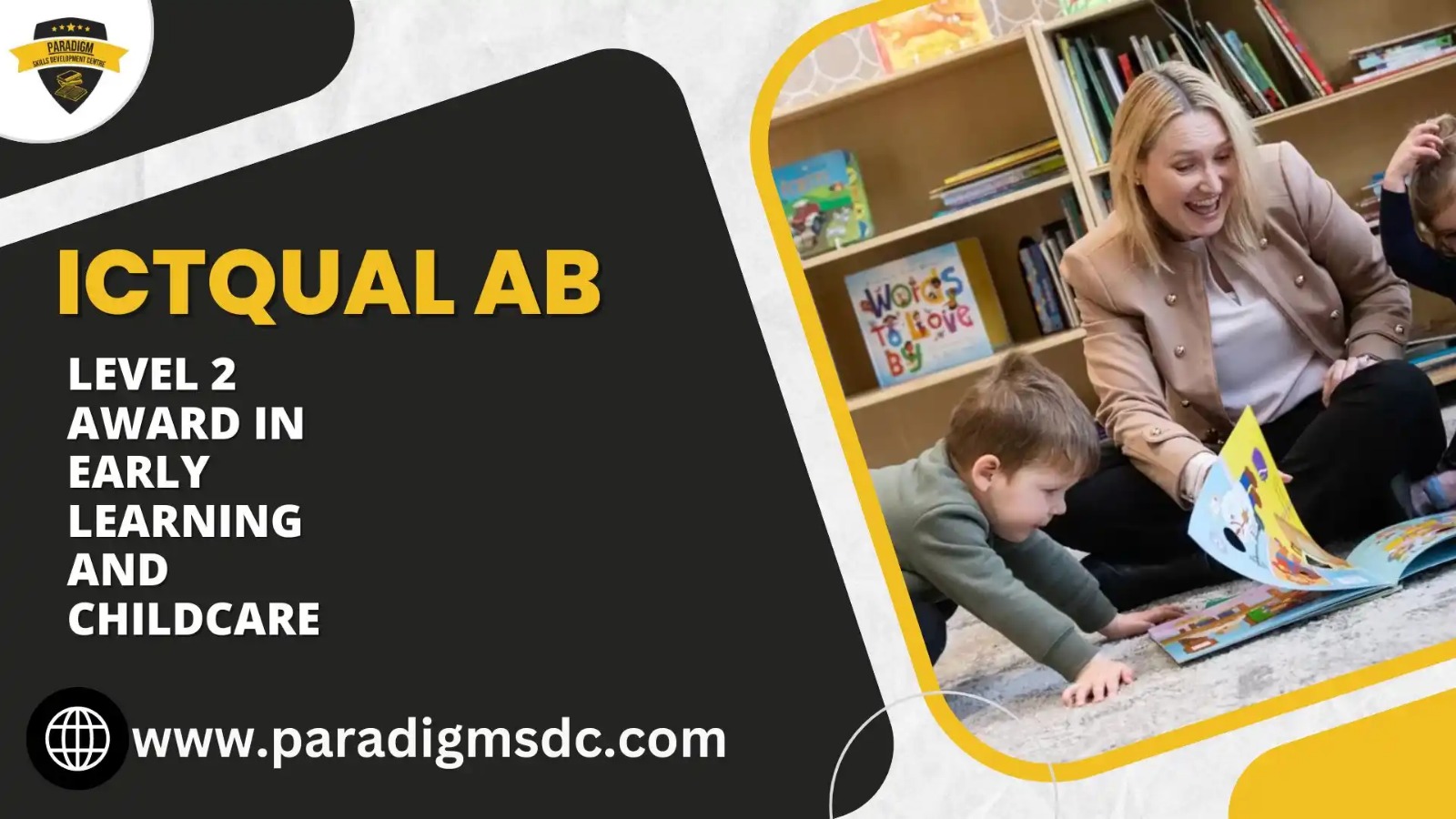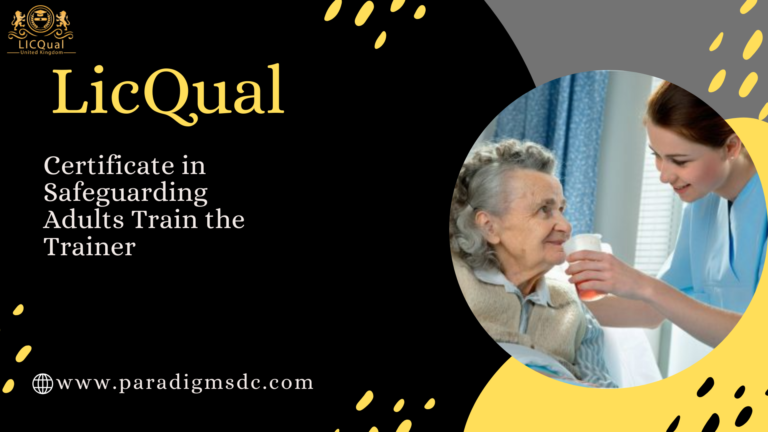Course Introduction
The ICTQual Level 2 Award in Early Learning and Childcare is designed to provide learners with a foundational understanding of the principles and practices involved in early childhood education and care. This course aims to equip aspiring childcare professionals with the knowledge and skills necessary to support the development and well-being of young children in a variety of settings.
Course Overview
The ICTQual Level 2 Award in Early Learning and Childcare offers a comprehensive introduction to the early years sector, covering key aspects of child development, health and safety, and effective communication with children and their families. The course is structured to blend theoretical knowledge with practical applications, ensuring that learners gain a well-rounded education in early childhood care.
Course Study Units
- Child Development and Well-being
- Supporting Early Learning and Play
- Promoting Positive Behavior
- Observation, Assessment, and Planning
- Safeguarding and Child Protection
- Special Educational Needs and Disabilities
- Outdoor Learning and Nature Play
Learning Outcomes
Upon completing the ICTQual Level 2 Award in Early Learning and Childcare, learners will be able to:
- Child Development and Well-being:
- Understand the stages of child development from birth to adolescence, including physical, cognitive, social, and emotional milestones.
- Recognize factors that influence children’s development and well-being, such as genetics, environment, and caregiving practices.
- Identify strategies for promoting positive outcomes and supporting children’s holistic development across all domains.
- Supporting Early Learning and Play:
- Appreciate the importance of play in children’s learning and development, including its role in fostering creativity, problem-solving, and social skills.
- Plan and facilitate developmentally appropriate activities and experiences that support children’s learning goals and interests.
- Create inclusive and stimulating environments that encourage exploration, experimentation, and imaginative play.
- Promoting Positive Behavior:
- Understand the principles of positive behavior management and their application in early years settings.
- Recognize the factors that contribute to challenging behaviors in young children and implement strategies for prevention and intervention.
- Foster a positive and supportive learning environment that promotes self-regulation, cooperation, and empathy among children.
- Observation, Assessment, and Planning:
- Develop skills in observing children’s behavior, interactions, and achievements in early years settings.
- Use a variety of observation methods and tools to document children’s progress and assess their learning and development.
- Utilize observation data to inform individualized planning and provision, adapting activities and experiences to meet children’s evolving needs and interests.
- Safeguarding and Child Protection:
- Understand the legal and ethical responsibilities of early years practitioners in safeguarding and promoting the welfare of children.
- Recognize signs of abuse and neglect and understand procedures for reporting concerns and seeking support.
- Implement effective safeguarding practices, including risk assessment, supervision, and partnership working with families and external agencies.
- Special Educational Needs and Disabilities (SEND):
- Develop an understanding of common SEND conditions and their impact on children’s learning and development.
- Identify strategies for creating inclusive learning environments and supporting children with additional needs.
- Collaborate with families, professionals, and external agencies to develop and implement individualized support plans that meet the unique needs of children with SEND.
- Outdoor Learning and Nature Play:
- Appreciate the benefits of outdoor play and learning for children’s physical, cognitive, and emotional well-being.
- Design outdoor environments that support exploration, risk-taking, and connection with nature.
- Plan and facilitate nature-based activities and experiences that promote curiosity, environmental awareness, and a sense of stewardship among children.
Course Benefits
- Enhanced Knowledge: Gain a solid foundation in early childhood education and care.
- Practical Skills: Develop practical skills that can be applied in real-world early years settings.
- Career Opportunities: Open up pathways to various roles within the early years sector.
- Professional Development: Improve your professional competence and confidence in working with young children.
Who is This Course For?
The ICTQual Level 2 Award in Early Learning and Childcare is ideal for:
- Individuals looking to start a career in early childhood education and care.
- Current early years practitioners seeking to formalize their knowledge and skills.
- Parents and guardians who wish to gain a deeper understanding of child development and care practices.
- Volunteers and support staff working in early years settings who want to enhance their qualifications.
Future Progression
After successfully completing the ICTQual Level 2 Award in Early Learning and Childcare, learners can progress to higher-level qualifications, such as the ICTQual Level 3 Diploma in Early Learning and Childcare. This progression opens up more advanced career opportunities, including supervisory and managerial roles within the early years sector. Additionally, further education can lead to specialization in areas such as special educational needs, early years leadership, and childhood studies.
Embark on your journey towards a rewarding career in early childhood education with the ICTQual Level 2 Award in Early Learning and Childcare. Develop the skills and knowledge to make a positive impact on the lives of young children and their families.
4o







